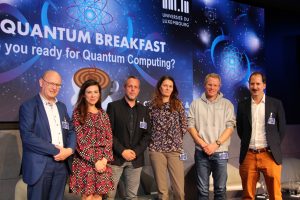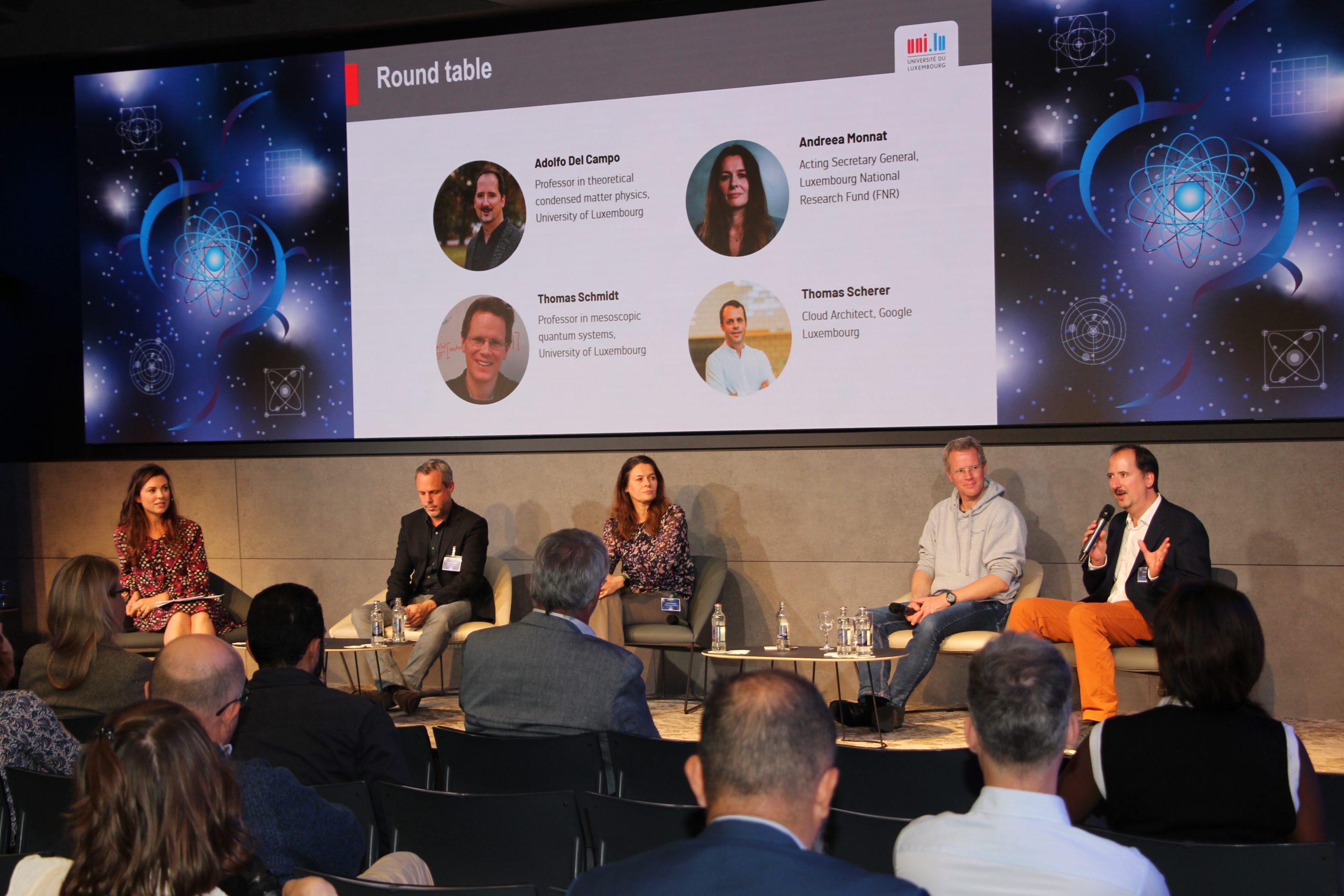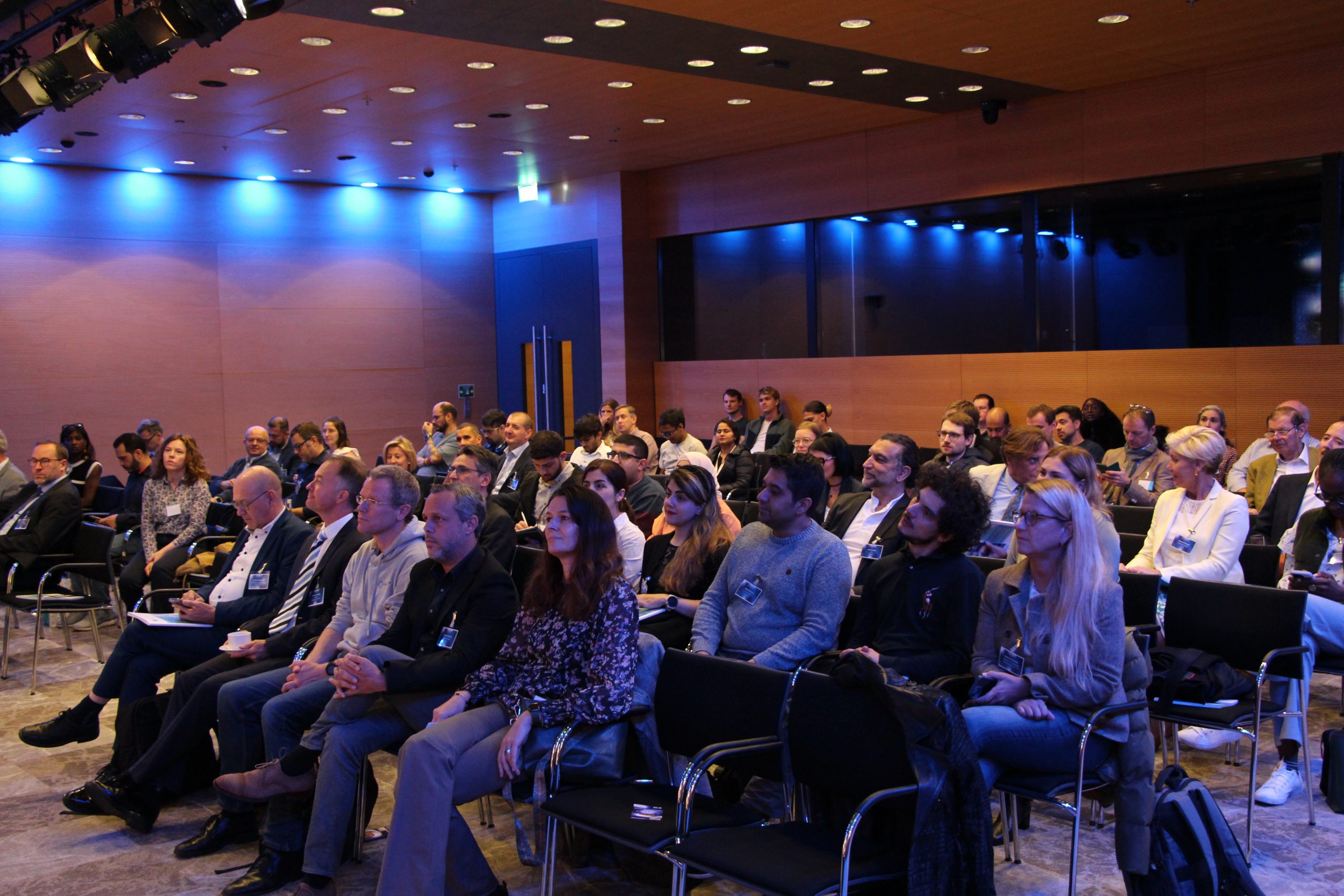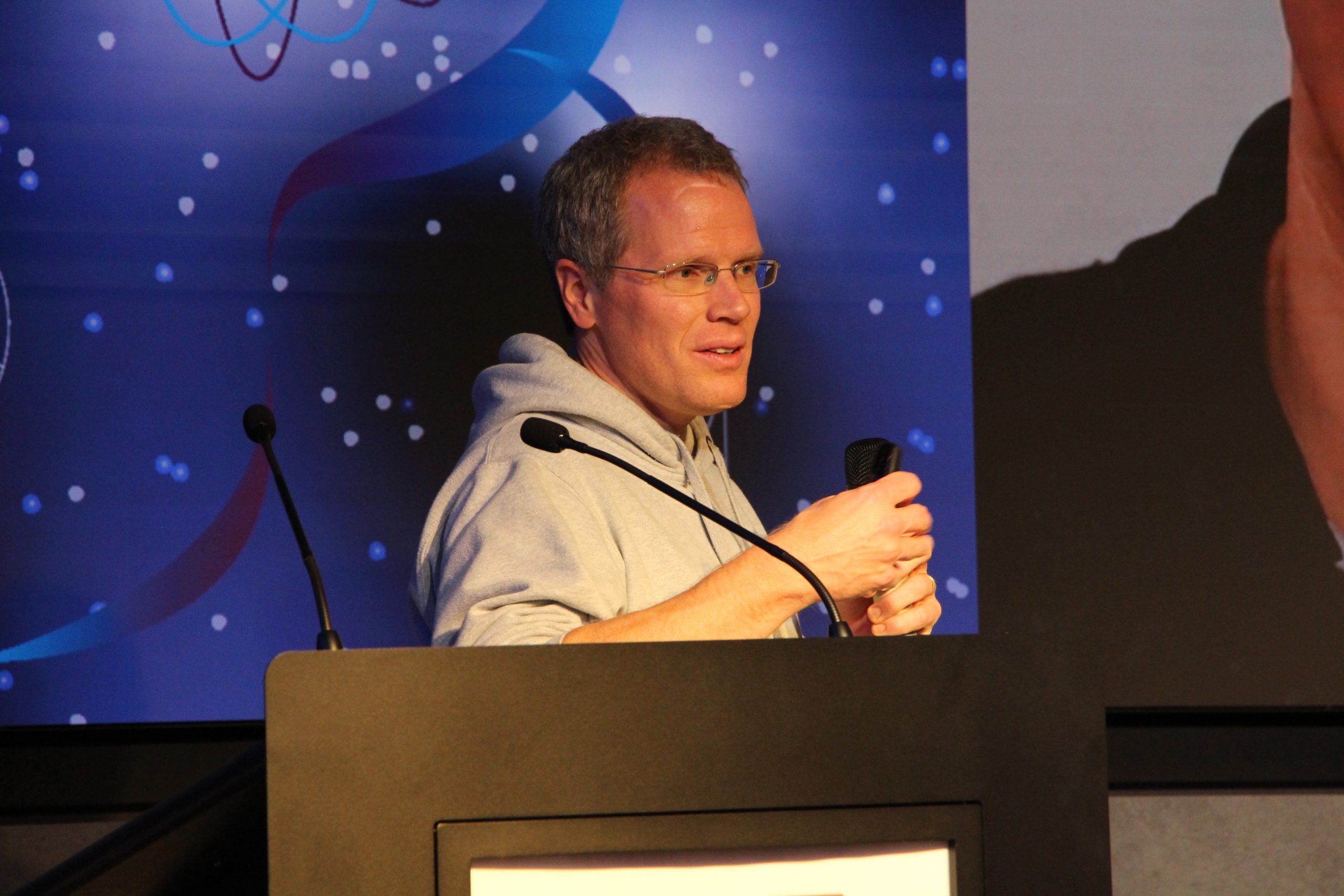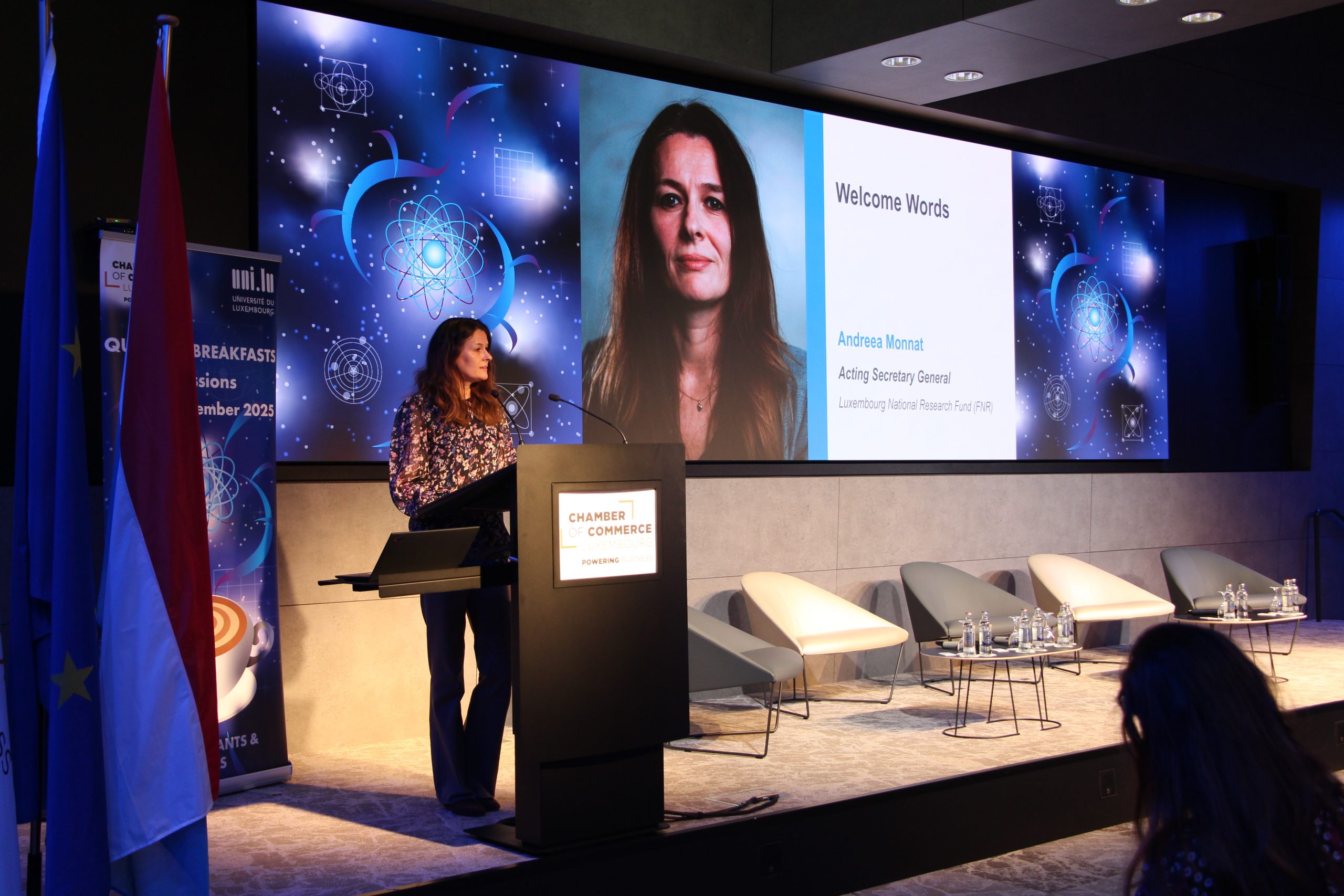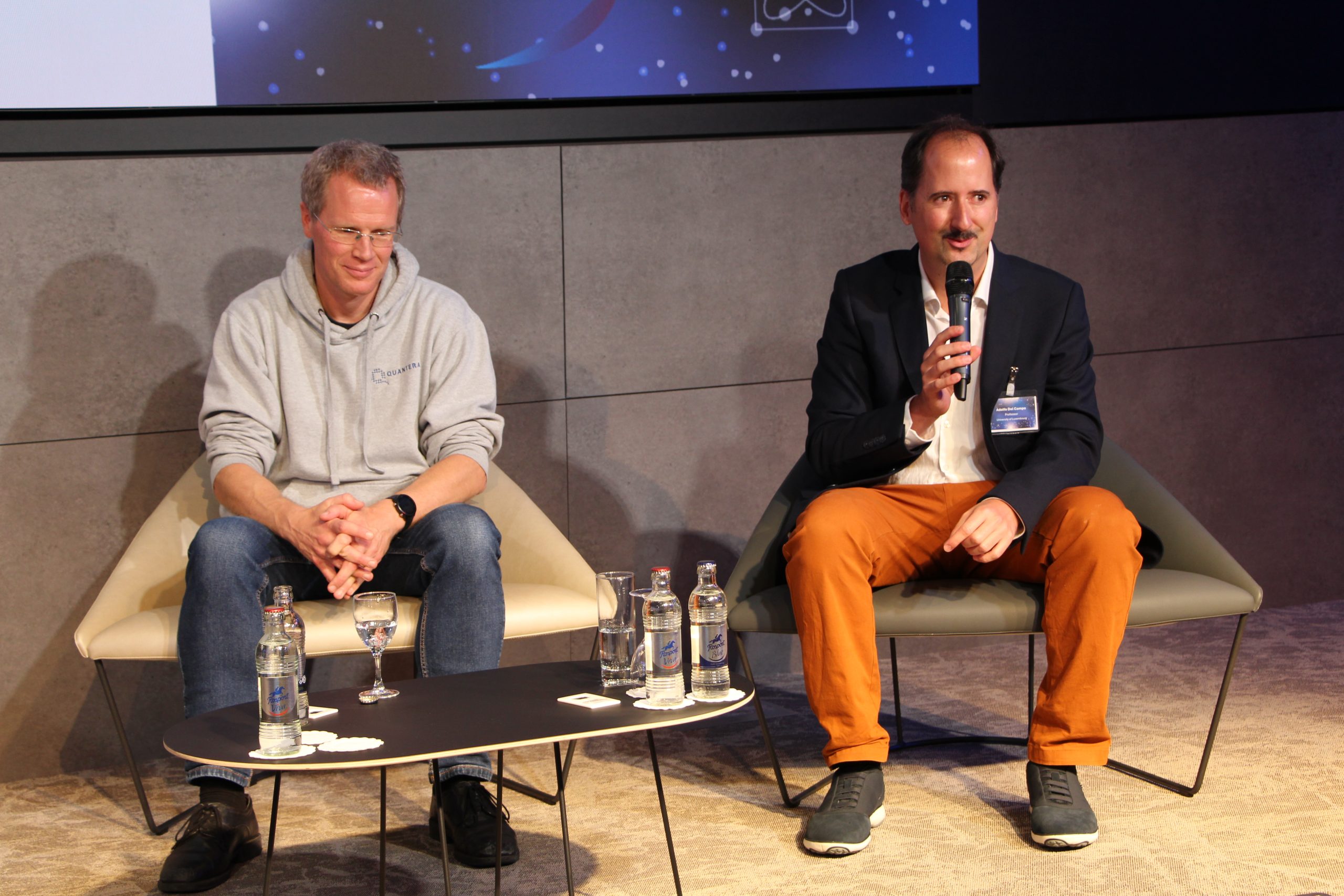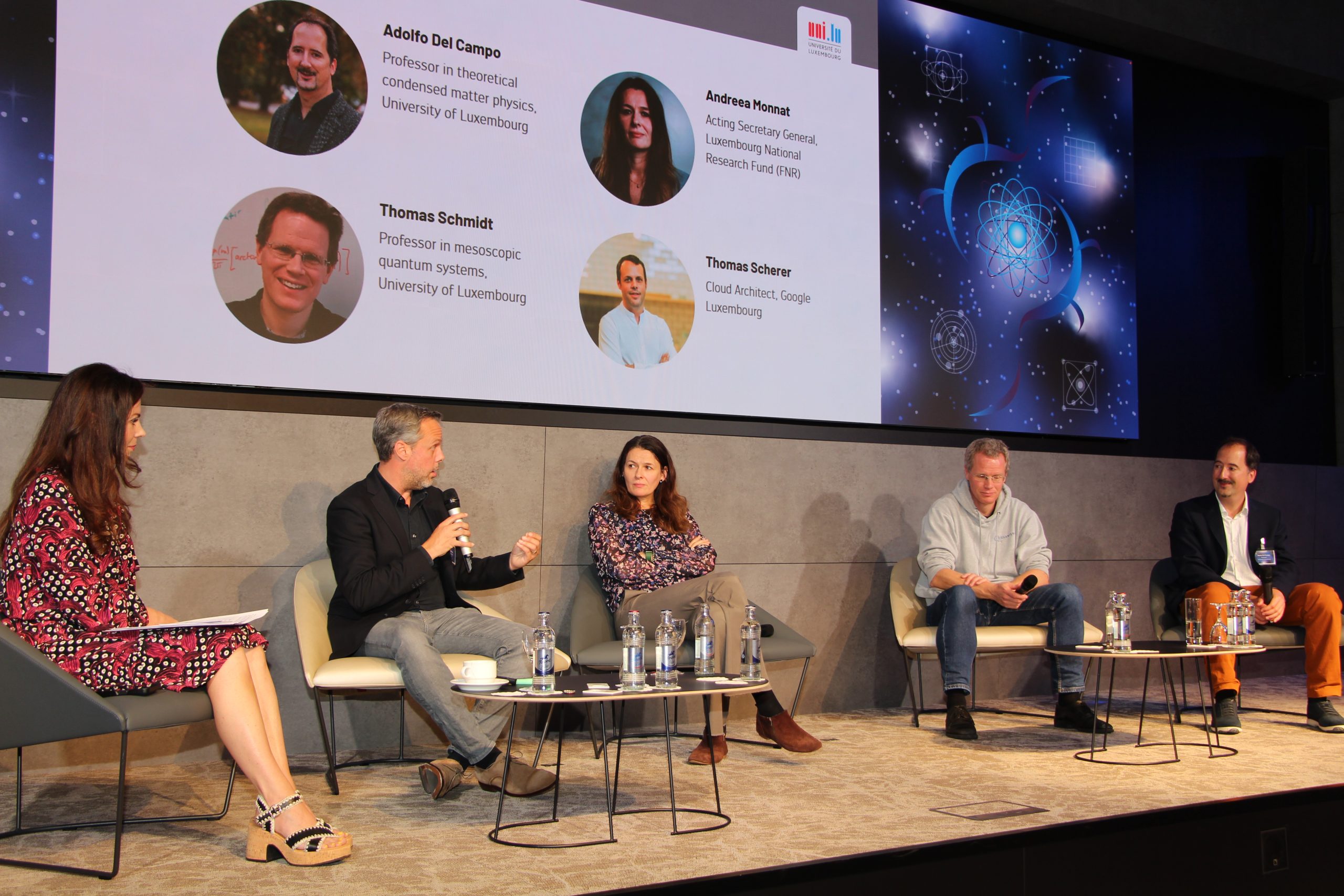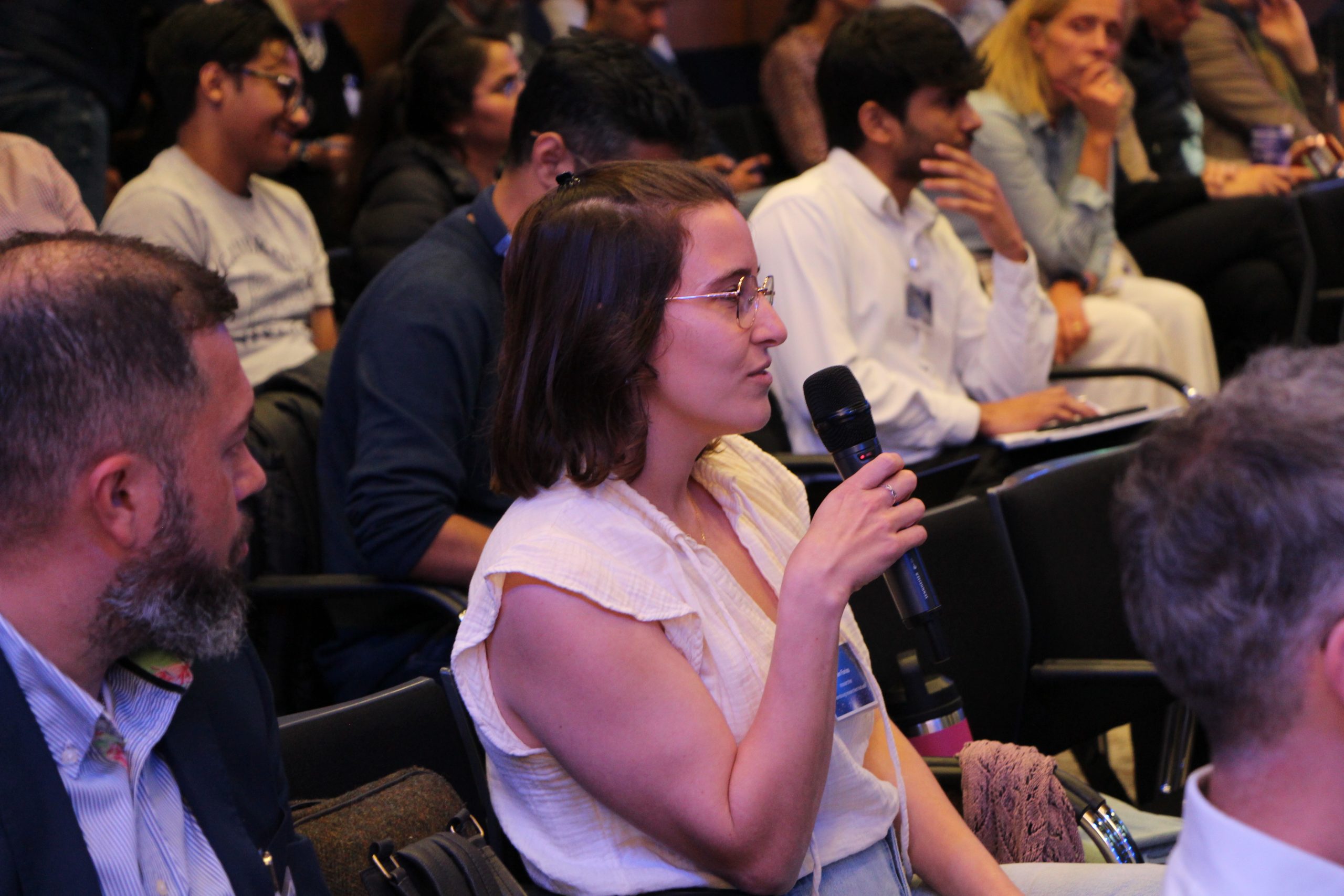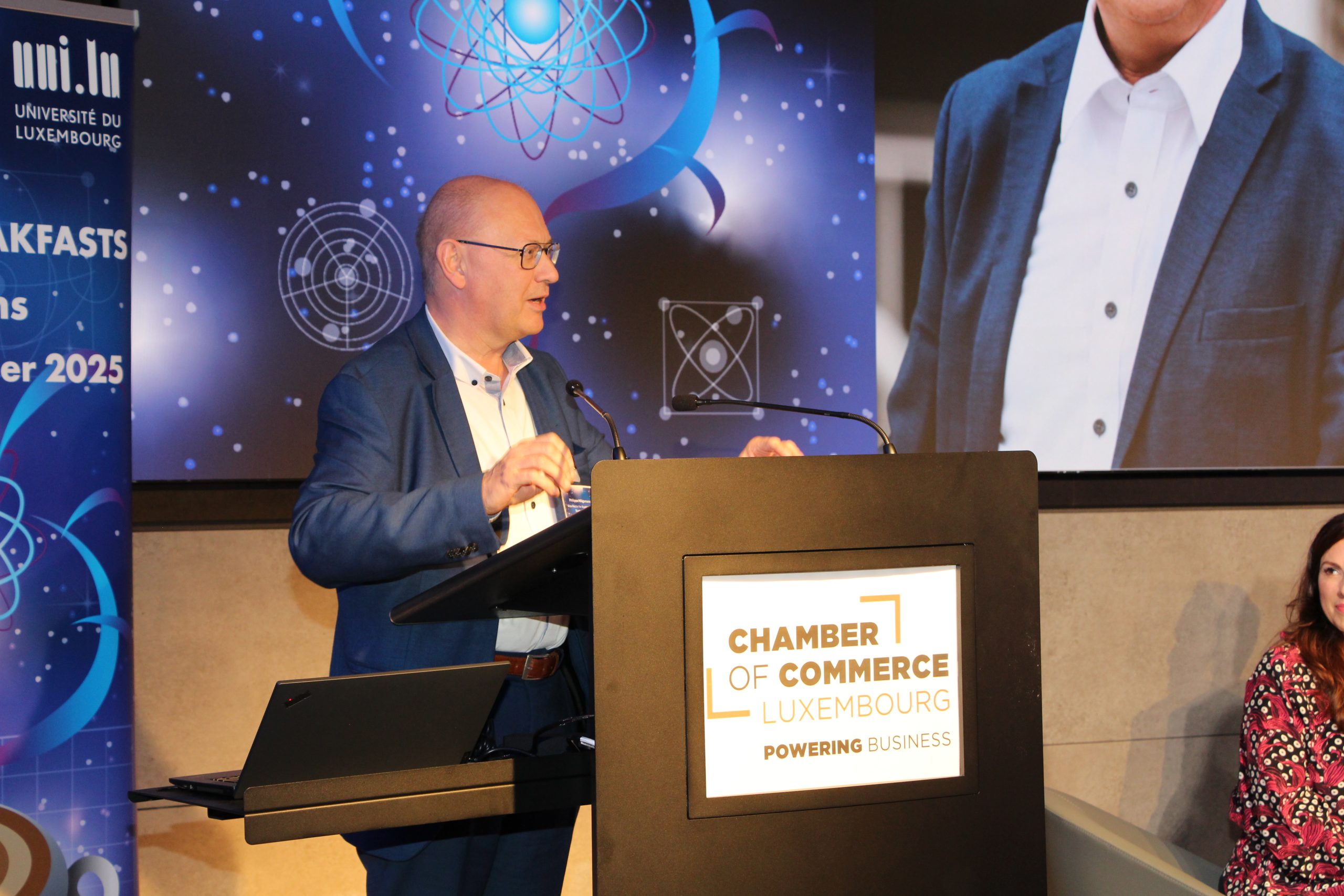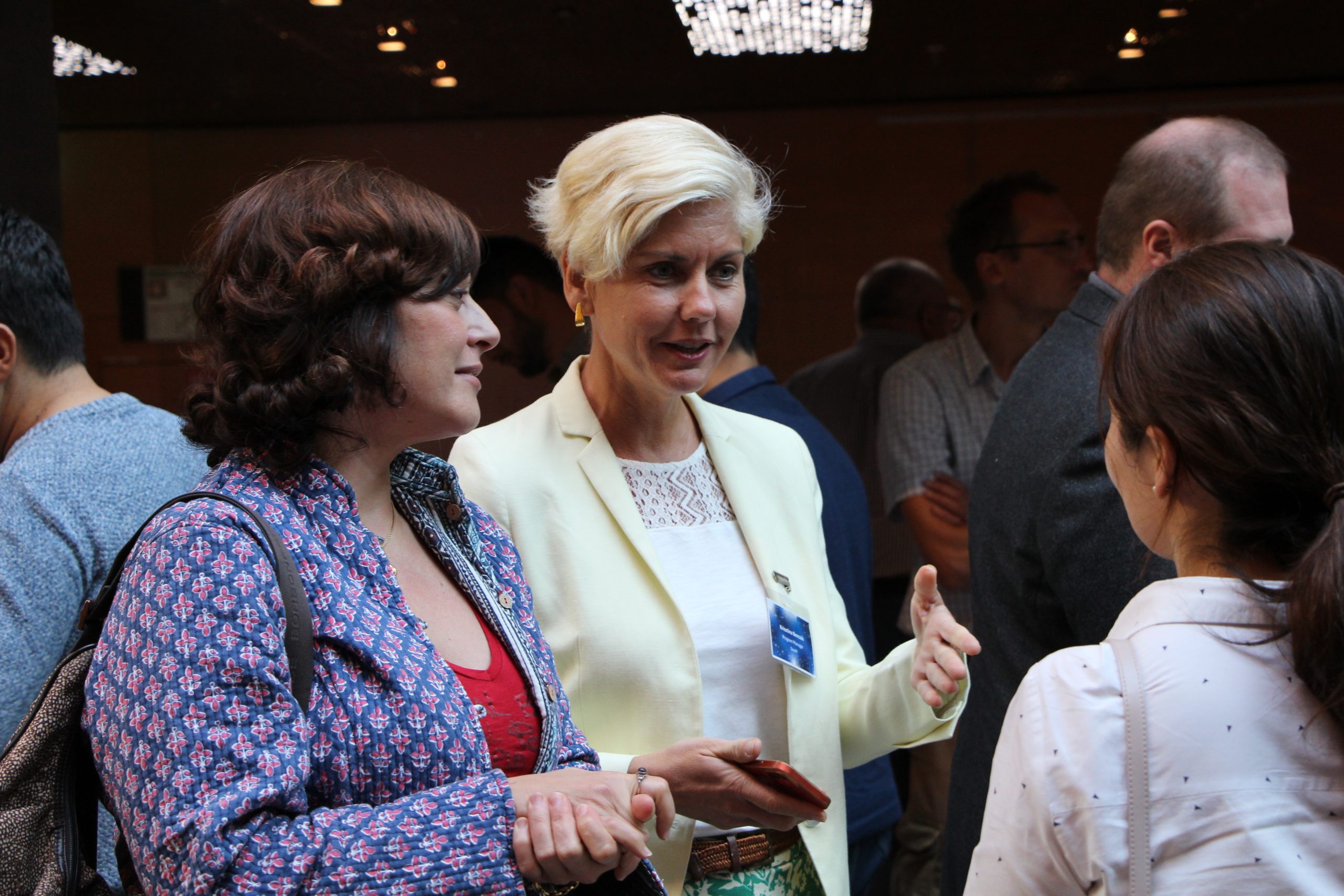Quantum computers are not just the next generation of computer, they are a revolution in how we think about computation itself.
Imagine a machine capable of exploring countless possibilities at once, tackling problems that would take classical computers billions of years. To understand how these technologies could reshape our world, experts from government, academia, and industry came together at the latest Quantum Breakfast.
Discussions in the series of Quantum Breakfasts so far have ranged from quantum algorithms to quantum communications. This latest session put the spotlight on the opportunities, challenges, and real-world applications of quantum computing in Luxembourg.
Real-world impact in environment and medicine
Consider nitrogen fertiliser production. Today, making fertiliser consumes roughly 2% of the world’s energy. In nature, certain bacteria produce nitrogen naturally. Replicating this process could make fertiliser production far more sustainable. However, simulating such complex chemistry on a classical computer would require a machine the size of a solar system.
Quantum computing offers a way forward. By harnessing superposition, quantum machines can explore many possibilities at once, making it possible to model these biological systems and tackle other complex challenges more efficiently.
‟ Travelling from South Africa to Spain by car is possible, but slow. A “quantum ship” might not go faster, but it finds a shortcut. Similarly, quantum computers do not replace classical machines, they create new pathways to solutions that were previously unreachable.”
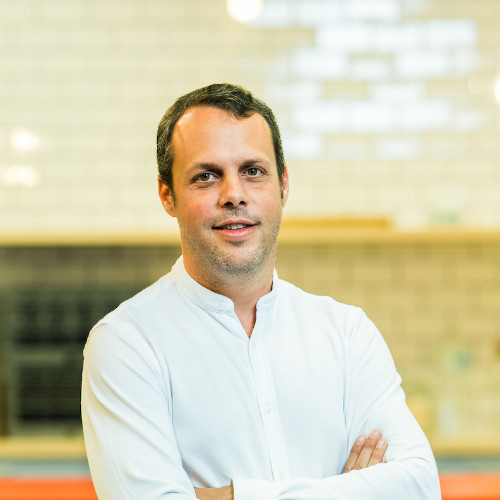
Cloud architect & machine learning specialist at Google
The potential of quantum computing goes far beyond fertilisers. In medicine, it could help predict how drugs interact with their targets, reducing side effects and improving treatment outcomes. In energy and materials science, it may accelerate the development of new batteries and alternative energy sources by modelling complex compounds such as lithium nickel oxide. And in industry, quantum machines could optimise operations across manufacturing, retail, and other sectors, solving challenges that classical computers cannot.
Bridging research and industry
This potential depends on strong collaboration. In Luxembourg, the ecosystem grows stronger because academia, industry, and government work closely together. Thomas Scherer, cloud architect & machine learning specialist at Google, underlined that this collaboration has to run both ways: companies rely on research for breakthroughs, while researchers need industry to test their ideas outside the lab.
This back-and-forth is what makes the difference. By fostering these connections, Luxembourg is creating an environment where research and industry meet.
‟ Our strength isn’t just the technology, it’s connecting academia, government, and industry. This synergy allows us to turn theoretical potential into practical solutions.”
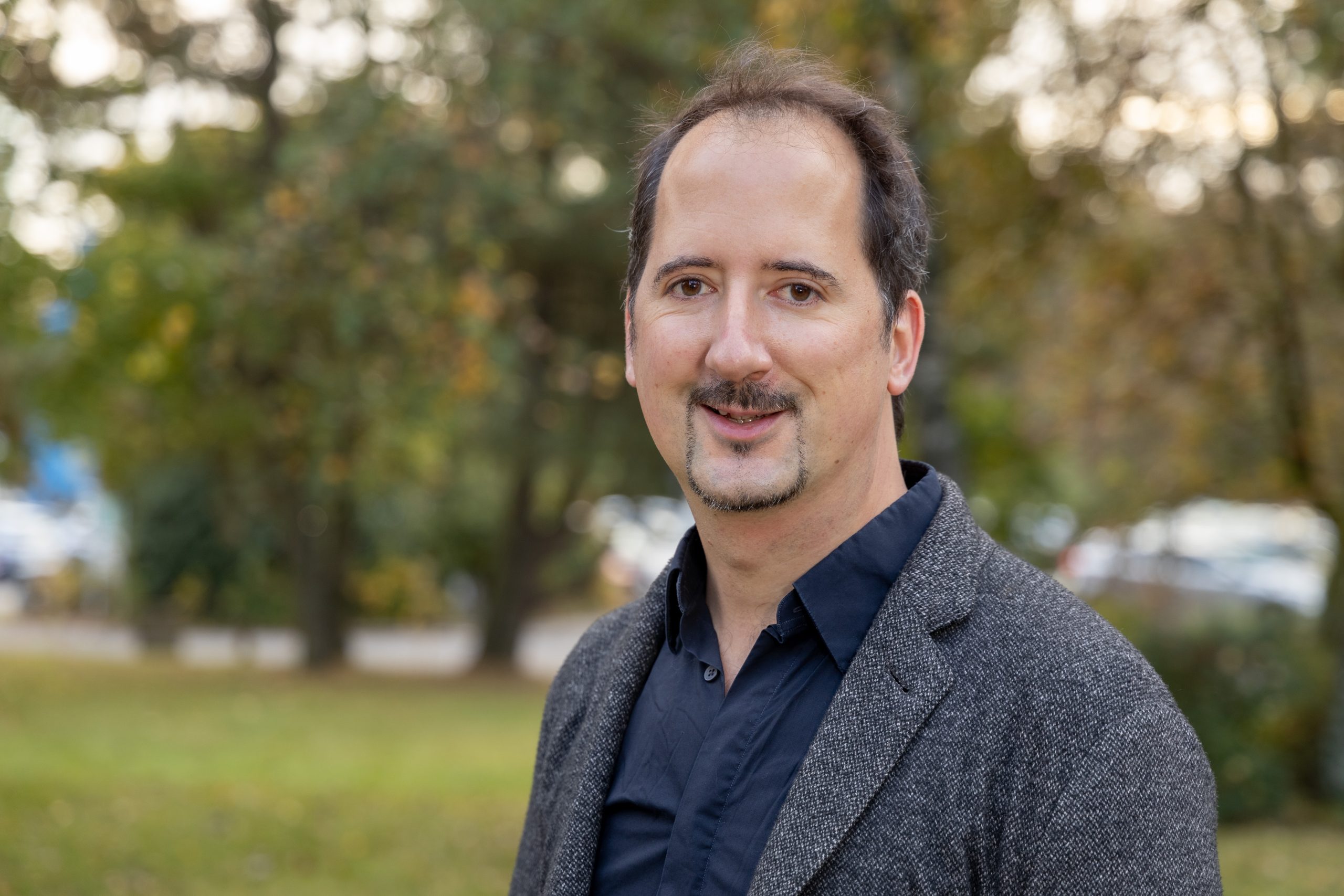
Professor in theoretical condensed matter physics, University of Luxembourg
Building a quantum-ready Luxembourg
At the Quantum Breakfast, Andreea Monat, Acting Secretary General at FNR made a simple but important point: being ready for quantum computing isn’t just about understanding the machines. It’s about weaving quantum into Luxembourg’s broader tech ecosystem, alongside AI and data, and making sure it serves society.
That starts with people, including students and younger generations. Philippe Hiligsmann, Vice Rector at the University of Luxembourg, noted that the HPC master’s programme already covers quantum computing, with plans to expand the training even further.
Talent is also key. The country’s ability to attract researchers from around the world further strengthens the ecosystem, helping to connect academic knowledge with real-world projects. At the same time, participation in European initiatives such as EuroHPC and the Quantum Flagship gives the country access to shared infrastructure and research networks.
Finally, the discussion highlighted the importance of regulation, standardisation, and ethical frameworks. These elements help researchers, industry, and policymakers navigate the unknowns and ensure interoperability.
Tackling quantum challenges with topological quantum
Quantum computers are incredibly powerful, but they face unique challenges. Their basic units, called qubits, are highly sensitive to their surroundings. Even tiny disturbances can cause errors, which means every operation has to be extremely precise.
Topological quantum computing could offer a way around this problem. Instead of storing information in ordinary qubits, it stores it in the « braids » formed by the exotic particles called anyons. These braids are naturally resistant to errors, potentially cutting down the need for complicated error-correction methods. Thomas Schmidt, professor in mesoscopic quantum systems at the University of Luxembourg, explained that these techniques are still experimental, but they offer a glimpse of how future quantum machines might tackle problems more reliably and at scale.
Looking ahead
The Quantum Breakfast highlighted that Luxembourg’s strength lies not just in technology, but in its people and connections. From researchers to industry leaders and policymakers, the country is fostering a culture of collaboration that encourages curiosity and experimentation.
The conversation is only beginning, but the message is clear: Luxembourg is already preparing to harness the power of quantum computing: it is exploring, adapting, and contributing to a world increasingly shaped by quantum possibilities. As Thomas Scherer noted “Quantum computing is already here. Right now, we have to experiment and play with it.”
Join the next Quantum Breakfast!
With technology this transformative and complex, making it accessible and understandable to the general public is crucial. This is the driving purpose behind the 2025 Quantum Breakfasts. More than just a series of talks, these events are about connecting the dots between research, industry, and national strategy. To build on this, the next Quantum Breakfast will take place on 23 October 2025 at the Chambre de Commerce, shining a spotlight on Quantum Cryptography.
